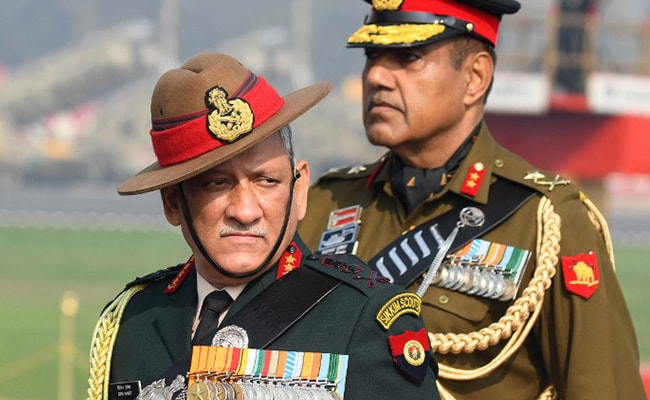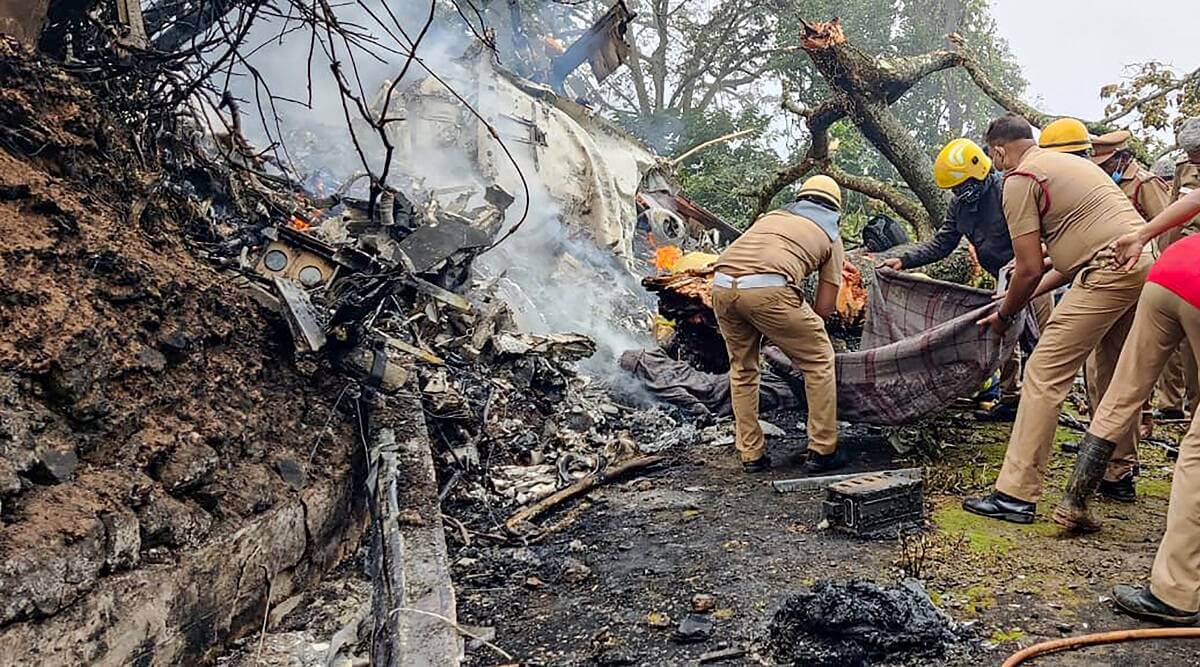On Thursday, Chinese state-owned media house Global Times (GT) attributed the death of now-former Indian Chief of Defence Staff (CDS) Gen. Bipin Rawat and 12 others in a helicopter crash to the lack of discipline within the Indian military.
Citing unnamed experts, the media house said that the chief’s demise had “not only exposed the Indian military’s lack of discipline and combat preparedness but also dealt a heavy blow to the country’s military modernisation that could linger for a long time.”
CDS Rawat died in a helicopter crash near Conoor, Tamil Nadu on Wednesday. The helicopter crash killed 13 people, including General Rawat and his wife. They were onboard a Russian-made Mi-17 V5 chopper of the IAF and were travelling from Sulur, Coimbatore to Wellington in the Nilgiri Hills. According to sources cited by NDTV, the helicopter had begun descending and would have landed in ten minutes.
Citing a report by India Today, which speculated that the possible causes of the crash could be foggy weather, an entanglement in power lines, a mechanical failure, or the wrong height at which the chopper began its descent, GT analysts asserted that “all of these possible causes point to human factors” and could not be attributed to the incompetence of the Russian-originated helicopter, “as the Mi-17 series choppers are widely used by other countries.”
Touting the reliability of the Russian chopper, GT cited Wei Dongxu, a Beijing-based military expert, who said that the Mi-17 V5 involved in the crash is “an improved version of the Mi-17,” which “is equipped with more powerful engines and advanced electronic devices,” thus “making it supposedly more reliable.”

Wei argued that since the Indian defence force “operates too many types of helicopters, including domestically developed ones, domestically produced ones with foreign technology transfer, ones imported from the US and ones imported from Russia,” and argued that this meant that “problems in logistics support and maintenance” were bound to happen.
Another anonymous analyst told the media house that “India is known to have a loose and undisciplined military culture, and Indian troops often do not follow standard operating procedures and regulations.”
Unidentified observers cited by GT went a step ahead and linked India’s “many previous accidents,” including a fire on aircraft carrier INS Vikramaditya in 2019 and an explosion on the Sindhurakshak submarine in 2013, to human error. In fact, Indian media reports from the 2013 tragedy had concurred that that explosion occurred due to a “lapse in procedure.”
General Rawat was India’s first Chief of Defence Staff, a position set up to integrate India’s three military services—the Army, the Navy, and the Air Force. He was appointed to the position in January 2019 and was also appointed as the head of the newly set up Department of Military Affairs. As the CDS, Rawat also held the position of the Permanent Chairman of the Chief of Staffs Committee and the principal adviser to the defence minister. His demise has therefore created a vacuum in several top security positions. The Indian government will therefore have to look for a replacement to unify the three services and bring them under an integrated theatre command. It is considered to be the “biggest reorganisation” of the Indian military since independence.
GT thus asserted that his death will “likely put the Indian military's modernization plan in disarray.” The outlet further speculated that “Even with India’s anti-China top defence figure gone,” India’s “aggressive posture toward China” along their disputed and volatile border regions “is unlikely to change.” The article then quoted Lan Jianxue, the director of the Department for Asia-Pacific Studies at China Institute of International Studies, who said, “Whether India changes or not, it will not change the fact that India's biggest enemy is its backwardness, not China.”
India’s latest accident “could have been avoided” if “the flight was delayed until the weather improved, the pilot had flown more carefully or skillfully, or the ground maintenance crew took better care of the chopper,” an anonymous expert told GT.

